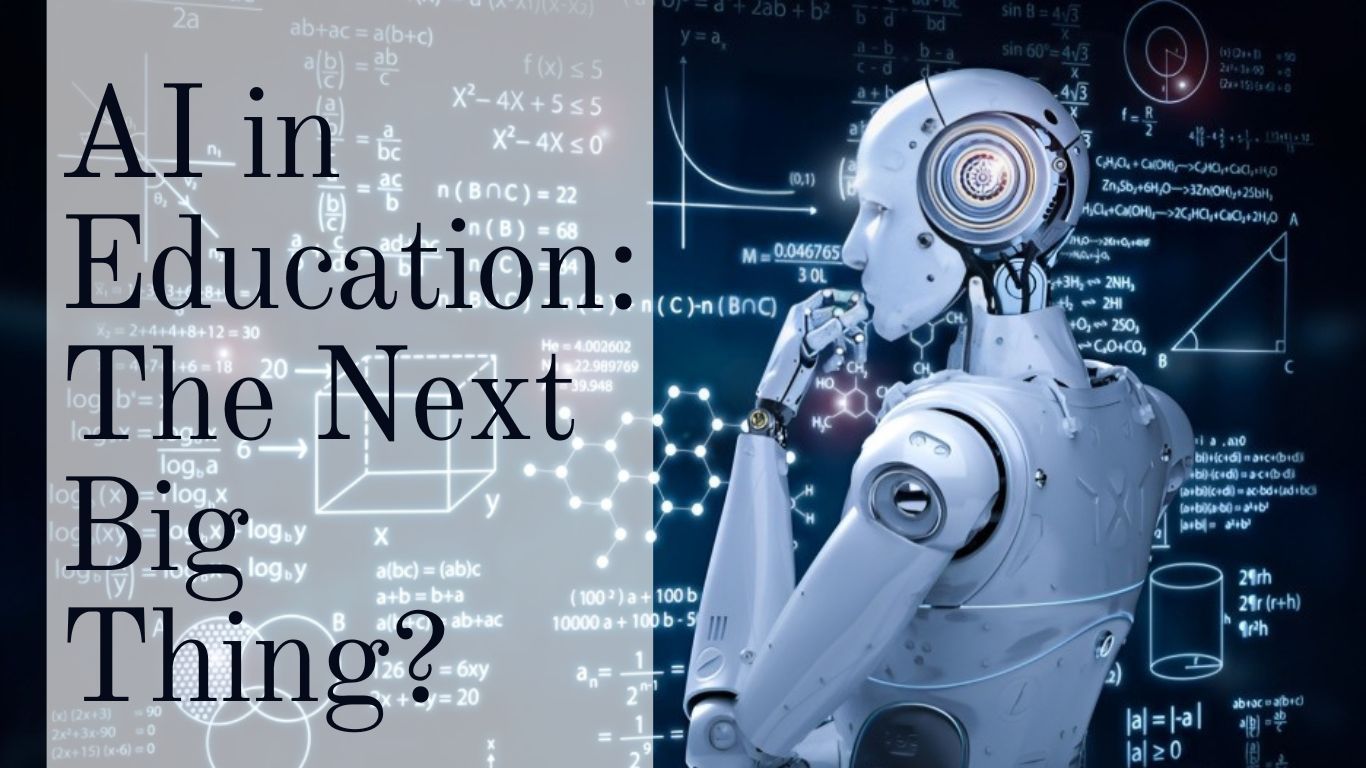Artificial Intelligence (AI) has become a transformative force in various industries, and its impact on education is undeniable. With the potential to revolutionize traditional teaching and learning methods, AI is poised to be the next big thing in education. In this article, we will explore the applications, benefits, challenges, and future implications of AI in education.
Understanding Artificial Intelligence
Artificial Intelligence refers to the simulation of human intelligence in machines that are capable of performing tasks that typically require human intelligence. In the context of education, AI encompasses a range of technologies, including machine learning, natural language processing, and computer vision. These technologies enable computers to analyze data, learn patterns, and make informed decisions, enhancing the educational experience.
Benefits of AI in Education
AI has the potential to transform education in numerous ways. One of its key benefits is personalized learning experiences. By leveraging AI algorithms, educators can tailor instruction to individual student needs, providing personalized learning paths and adaptive content. This approach fosters greater student engagement and motivation, as learners receive content that is relevant and tailored to their strengths and weaknesses.
Additionally, AI streamlines administrative tasks and data management. By automating administrative processes like grading, scheduling, and record-keeping, educators can dedicate more time to instructional activities and student support. Moreover, AI-powered systems can analyze vast amounts of educational data, providing valuable insights to inform instructional strategies and interventions.
AI also opens doors to global educational resources. With the help of AI-powered platforms, students can access a wealth of educational materials, regardless of their geographical location. This democratization of resources allows learners to explore diverse perspectives, enriching their educational journey.
Furthermore, AI enhances assessment and feedback systems. Intelligent algorithms can provide real-time feedback on assignments, identify areas of improvement, and offer personalized recommendations. This targeted feedback promotes self-reflection and supports student growth.
AI and Adaptive Learning
Adaptive learning, enabled by AI, is a groundbreaking approach to education. It tailors instruction to each learner’s unique needs, abilities, and preferences. AI algorithms analyze learner data, such as performance, learning style, and progress, to create personalized learning paths. These paths adapt and evolve based on the learner’s individual strengths and areas for improvement, fostering optimized learning outcomes.
Case studies have demonstrated the effectiveness of adaptive learning. For example, in a mathematics course, AI-powered platforms can identify a student’s misconceptions, deliver targeted interventions, and monitor progress. This personalized approach accelerates learning and empowers students to overcome challenges more effectively.
AI-powered Virtual Assistants and Chatbots
Virtual assistants and chatbots have become prominent features of AI integration in education. These intelligent tools serve as virtual mentors, providing guidance and support to learners. Virtual assistants can answer questions, offer explanations, and engage in dialogue with students. Chatbots, on the other hand, can assist with administrative tasks, such as course enrollment and scheduling.
The benefits of AI-powered assistants include 24/7 availability, personalized assistance, and the ability to handle multiple inquiries simultaneously. However, it is crucial to strike a balance between the use of AI and human interaction, as the human element remains vital in education.
Ethical Considerations of AI in Education
While AI offers promising possibilities, it also raises ethical concerns. Privacy and data security are primary considerations. Educational institutions must ensure that student data is protected and used responsibly. Additionally, biases within AI algorithms must be addressed to avoid perpetuating inequalities. Transparency and accountability in the development and deployment of AI technologies are crucial for ethical implementation in education.
Furthermore, inclusivity and accessibility should be prioritized. AI systems should be designed with diverse learners in mind, considering factors such as language barriers, disabilities, and different learning styles. Proactive measures must be taken to ensure that AI in education promotes equal opportunities for all.
Overcoming Challenges and Adoption
For successful integration, overcoming challenges is paramount. Adequate teacher training and professional development are essential to equip educators with the necessary skills to harness the potential of AI effectively. Collaborative efforts among educational institutions, policymakers, and technology providers are vital for addressing technological infrastructure requirements and ensuring widespread adoption.
By fostering partnerships, sharing best practices, and supporting research and development, stakeholders can create an ecosystem conducive to AI integration in education. Collaboration between educators, AI experts, and curriculum developers can pave the way for innovative solutions tailored to specific educational contexts.
Future Implications of AI in Education
Looking ahead, the future implications of AI in education are vast. Advancements in AI technologies, coupled with increased data availability, will enable more sophisticated personalized learning experiences. AI will continue to shape teaching and learning methodologies, fostering creativity, critical thinking, and problem-solving skills.
However, it is crucial to maintain a balance between AI integration and human interaction. The human element in education, including the guidance of teachers and the social dynamics among students, remains invaluable. AI should complement and enhance these aspects rather than replace them.
Conclusion
AI in education holds tremendous potential to revolutionize the way we learn and teach. From personalized learning experiences to adaptive instruction, AI offers various benefits that can improve educational outcomes. However, ethical considerations, such as privacy, fairness, and inclusivity, must be at the forefront of AI integration. By leveraging AI responsibly and collaboratively, we can harness its power to create a more inclusive, engaging, and effective educational ecosystem.
